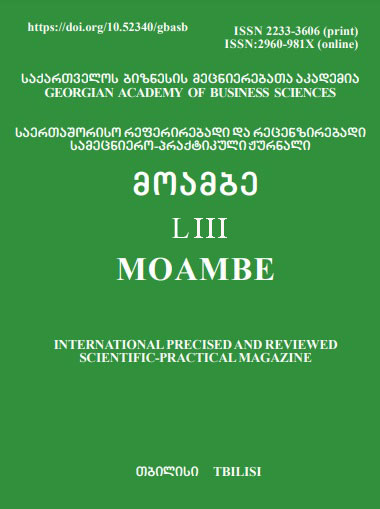The Most Common Research Paradigms
DOI:
https://doi.org/10.52340/gbsab.2024.53.02Keywords:
Ontology, epistemology, axiology, positivism, pragmatism, constructivism, post-positivistsAbstract
So, in summary, understanding and explaining your research paradigms in publications or theses is not merely a theoretical exercise but a practical necessity that underpins the trustworthiness, clarity, and impact of research. It serves as a bridge connecting the philosophical foundations of a study with its practical execution and interpretation, enriching both the research process and its contributions to knowledge. The explicit articulation of research paradigms contributes to ongoing disciplinary dialogue and debate about the nature of reality and knowledge construction in a field. It encourages reflexivity among researchers, prompting them to consider and articulate their own positions. This reflexivity enriches the field by fostering a diversity of perspectives and approaches, leading to a more robust and dynamic academic discourse. For those looking to replicate or build upon a study, understanding its paradigmatic underpinnings is essential. It ensures that subsequent research is grounded in the same philosophical assumptions, or consciously diverges from them, maintaining a level of methodological consistency and rigour across studies.
Downloads
References
"Cobble". vub.ac.be. Retrieved 5 May 2018. [permanent dead link]
"Aspect Cocoa". neu.edu. Archived from the original on 26 October 2007. Retrieved 5 May 2018.
"Coldspring Framework: Welcome". 5 November 2005. Archived from the original on 5 November 2005. Retrieved 5 May 2018.
"Closer Project: Aspect". Archived from the original on 23 February 2011. Retrieved 11 August 2015.
"Infra – Frameworks Integrates Para Delphi – Google Project Hosting". Archived from the original on 9 September 2015. Retrieved 11 August 2015.
Downloads
Published
How to Cite
Issue
Section
License
Copyright (c) 2024 Georgian Academy of Business Sciences "Moambe"

This work is licensed under a Creative Commons Attribution-NonCommercial-NoDerivatives 4.0 International License.




